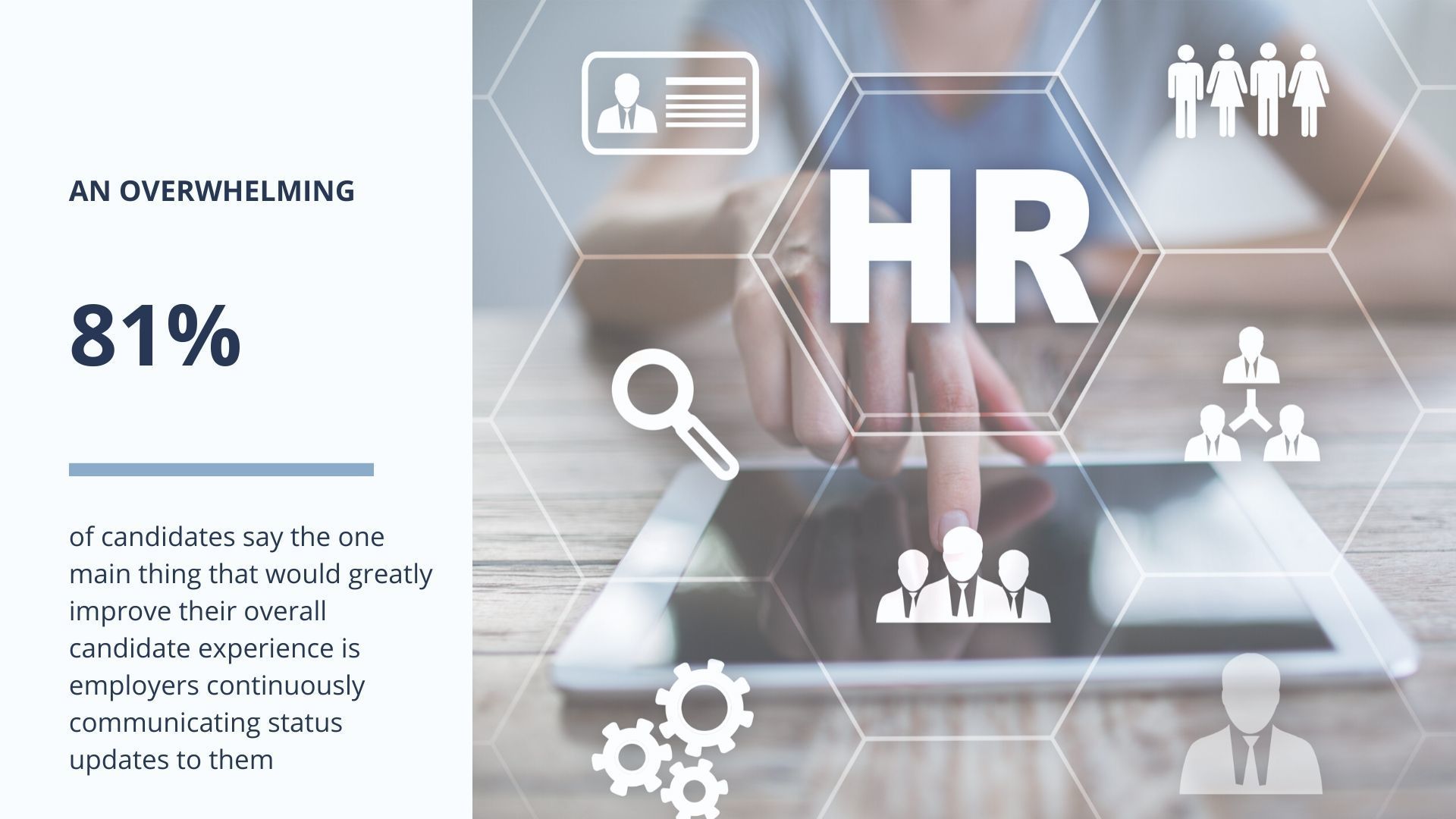5 Tips For Talent Pros During a Hiring Freeze
First, we hope everyone is healthy and doing their part to flatten the curve. We are all in this together, and IMC Culture is here to support you wherever we can.
The #1 question talent acquisition professionals are asking me right now is, "What do I do if my company is on a hiring freeze"?
As a former Regional CHRO, I considered my talent acquisition team to be the best external brand ambassadors for the organization (#TheDreamTeam). Talent professionals' role in enhancing the organization's employer brand is more important today than prior to the COVID-19 pandemic.
We are likely entering the most extensive hiring freeze in modern history. According to a CareerBuilder survey, an overwhelming 81% of candidates say the one main thing that would greatly improve their overall candidate experience is employers continuously communicating status updates to them. Talent pros that communicate effectively and follow-up consistently will enhance the candidate experience and employer brand.
The tips below will help organizations...
- Give tangible direction to talent pros that thrive in fast-paced environments and may be struggling with the adjustment to a hiring freeze
- Provide support to the millions of candidates looking for opportunities in uncertain times
- Enhance their employer brand internally and externally
Tip #1: Talent pros should invest in their personal and professional development #BecomeATalentALLPro.
We encourage talent pros to complete as many professional development courses as possible. We also encourage talent pros to learn more about the industry they support.
- What are the macroeconomic factors that will impact the industry?
- How do competitors stack up against my organization? Prior to COVID-19, during the crisis, and after the crisis?
- What are the top day-to-day operational challenges employees face? What are leaders doing to address these operational challenges?
- How are publicly traded companies in my industry fairing during this crisis (in relation to the overall market)?
- Are there any regulatory or compliance changes that will impact operations? If so, what are those changes and what impact will they have on operations?
Tip #2: Identify the candidates your organization cannot afford to lose (#SaveTheUnicorns) and keep them engaged.
- Schedule weekly (or more frequent if necessary) status updates
- Share as much information with candidates as you can; knowledge is power
- Connect candidates to hiring managers or peers to learn more about the organization
- Encourage senior leaders to send candidates personal notes
- Ask candidates for the opportunity to talk before accepting offers with other organizations
Tip #3: Acknowledge the fear and uncertainty that candidates are experiencing and show compassion by directing them to helpful resources available to the public. Below are a few recommendations...
- Unemployment Application: Candidates that have been recently laid off should complete a search for "[insert state] unemployment application online" to gain a better understanding of how to apply for unemployment benefits.
- Credit Card / Home / Vehicle Payment Deferral: Most banks and credit unions are offering payment deferral options, candidates should complete a search for "[insert bank] payment deferral options" to gain a better understanding of what their banks are offering.
- IRS Updates on COVID-19 Stimulus Checks: Candidates may want to follow the IRS on social media for updates on COVID-19 payment information and scams.
IRS App = IRS2GoApp
Twitter = @IRSNews
Facebook = IRS or IRS en Espanol
Instagram = @IRSNews
Tip #4: Share information on what your organization is doing to support current employees.
CAUTION = Conduct a quick search to see how your organization stacks up to other organizations in your industry. A few actions to consider...
- Did your CEO or senior executives agree to forgo a portion or all of their salaries during the pandemic?
- Did your organization make a commitment to not layoff employees or furlough employees?
- Did your organization offer to cross-train employees to perform different jobs in the organization?
- Did senior leaders in your organization solicit feedback from employees on how to address the financial challenges posed by the COVID-19 pandemic? If so, how did employees provide feedback? Survey? Town hall? Email? Webcast?
Tip #5: Share what your organization is doing to support the healthcare industry or the general population fight COVID-19. If non-employees can contribute to your organization's efforts, invite candidates to join the fight.
Below are a few examples of non-healthcare companies joining the fight against COVID-19.
- Allbirds (sneaker company): Giving free shoes to any healthcare worker that reached out
- Crocs Shoes: Donating 10,000 pairs of Crocs to healthcare workers every day
- Headspace (meditation service): Offering paid subscription libraries to healthcare workers for free
- IMC (#PracticeWhatWePreach): Leading fundraising campaigns for school districts in need of technology to support virtual learning and healthcare organizations with assistance programs that provide financial support to healthcare employees
- Krispy Kreme (donuts): Offering a free dozen donuts on Mondays through May 11th to anyone who works in healthcare who shows up with their employee badge
- Nike: Committing more than $17 Million to COVID-19 response efforts around the world (https://purpose.nike.com/covid-19-response-efforts)
- Starbucks: Gives a tall hot or iced coffee to all healthcare workers through May 3rd
#ContactIMC at info@imc.consulting if you would like to learn more about our talent management and talent acquisition services. We are all in this together!


